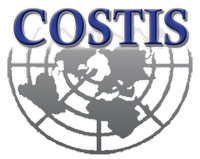 Budapest, Hungary. The Consortium for Science, Technology and Innovation for the South (COSTIS) has been launched at a ceremony held at the Hungarian Academy of Sciences. Representatives from more than 50 government agencies and international organizations, including 25 ministers of science and technology from the developing world, attended the event. Davidson L. Hepburn, president of UNESCO’s General Conference and the Bahamas’ permanent delegate to UNESCO, Luisa Rebeca Sanchez, Venezuela’s permanent delegate to UNESCO, Walter Erdelen, head of UNESCO’s Natural Sciences Sector, and Jacob Palis, president of TWAS, shared the podium to welcome the arrival of COSTIS.
Budapest, Hungary. The Consortium for Science, Technology and Innovation for the South (COSTIS) has been launched at a ceremony held at the Hungarian Academy of Sciences. Representatives from more than 50 government agencies and international organizations, including 25 ministers of science and technology from the developing world, attended the event. Davidson L. Hepburn, president of UNESCO’s General Conference and the Bahamas’ permanent delegate to UNESCO, Luisa Rebeca Sanchez, Venezuela’s permanent delegate to UNESCO, Walter Erdelen, head of UNESCO’s Natural Sciences Sector, and Jacob Palis, president of TWAS, shared the podium to welcome the arrival of COSTIS.
In a message sent to the participants, Abdalmahmood Abdalhaleem Mohamed, chair of the Group of 77 and Sudan’s permanent representative to the United Nations in New York, noted that “the G77 is confident that COSTIS will play an instrumental role in making science, technology and innovation an integral part of the development process in the South.”
A major goal of COSTIS will be to provide a platform for officials from both policy and funding institutions, most notably ministries of science and technology and research councils, to interact with eminent scientists and technologists to forge effective national and regional strategies for science-based development. COSTIS will also seek to promote South-South and South-North collaboration in science and technology. Again, the focus will be placed on initiatives that help fuel economic development and address critical social needs. Concrete strategies for achieving these goals will include providing opportunities for the exchange of information on best practices for integrating science and technology into national plans for economic development.
The first steps to be taken in making COSTIS operational will be to identify the site of the interim secretariat and to appoint a steering committee to replace the task force that has guided the formation of the organization over the past three years. Representatives of the G77, TWAS and UNESCO will serve on the steering committee, which will be responsible for finalizing COSTIS’s statutes and bylaws as well as taking the lead in planning the organization’s inaugural general conference scheduled to take place in 2010.
Mohamed H.A. Hassan, executive director of TWAS and one of the architects of the consortium, stated that "the fledgling organization will face several major challenges in the months ahead. First, it must finalize its legal framework. That means gaining approval for the statutes and bylaws.”
Second, “it must expand its membership.” While COSTIS currently includes some 90 members, including 25 ministries of science and technology and 35 science academies, Hassan observed that “it needs to reach out to a larger number of institutions to truly represent the breadth of activities in science, technology and innovation now taking place in the developing world.”
And third, it will need to quickly put in place tangible activities that showcase the organization’s purpose and drive. “That means devising an action agenda for workshops, conferences and publications over the course of next year,” Hassan said.
Discussions that led to the launch of the organization began in Havana in 2000 and then passed through Dubai, Rio de Janeiro and New York on the way to Budapest. “COSTIS,” as TWAS president Jacob Palis asserted, “has had a long period of gestation. The discussions have proven essential for shaping the organization. "Now COSTIS enters a new phase in which it hopes to take action to bridge the divide that has often existed between scientific research and policy implementation, especially in the developing world,” he added.
Members of the steering committee for COSTIS will be announced in January. The first meeting of the committee will take place in the spring.

